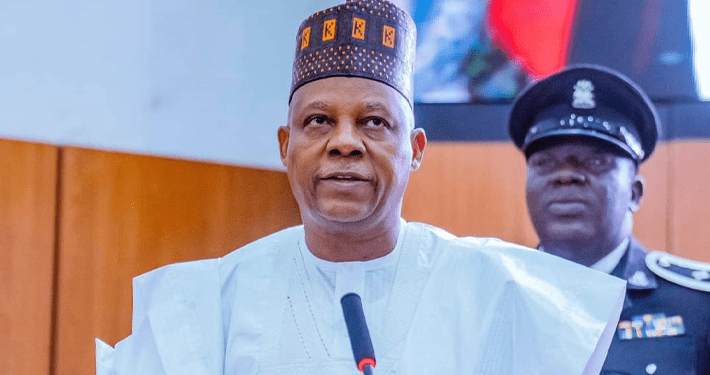Vice President Kashim Shettima has expressed concern over the data and information gaps between the National Bureau of Statistics (NBS), states and local government areas.
Mr Shettima spoke at the 2025 workshop of the Chartered Institute of Stockbrokers (CIS) on Tuesday in Abuja.
Tope Fasua, the special adviser to the president on economic matters, represented the vice president.
Mr Shettima, who was reacting to the 3.13 per cent Rebased Gross Domestic Product (GDP) results released by the NBS on Monday, doubted that the rate reflected an accurate picture of economic growth.
Following the rebasing of Nigeria’s GDP report, the NBS stated that the country’s economy grew by 3.13 per cent in the first quarter of 2025 from the 2.27 per cent recorded in the same period in 2024.
Mr Shettima noted that most of the state governors had been able to double their internally generated revenue (IGR).
”If the state levels are an addition of what happens at the federal level, you wonder, if the states have increased their IGR between 100 and 300 per cent, how come the GDP is still where it is.
”And if the GDP is still growing at about three per cent, that means there is a lot more to discuss at that level.
”You will be shocked at the amount of information lacuna from the institutions’ repository of our data from the state, local government levels,” he said.
Speaking on the capital market, he said capital formation was the engine of infrastructural development, growth and a higher standard of living for citizens in the country.
Mr Shettima said that in 2023, the country’s All-Share Index (ASI) stood at 55,000 points, while the market capitalisation was around N28 trillion.
The vice-president said that as of July 2025, the ASI had risen to 131,000 points, and market capitalisation soared to N75 trillion.
He said the figure represented a threefold increase in market value within two years, which was facilitated by renewed investors’ confidence, resulting in business expansion and a significant boost to national wealth.
Mr Shettima said the figure had shown that the economy of the country was on a clear path of recovery and sustainable economic growth.
Corroborating Mr Shettima’s worries, Governor Caleb Mutfwang of Plateau called for collaboration among various stakeholders.
Mr Mutfwang said the state’s IGR had grown tremendously and noted that the data released by the NBS about his state was not a true reflection of happenings in the state.
”A lot of data we are generating is not from the bottom to the top; we harvest them from the top.
”We need to have the collaboration, we must ensure that every sub-national also grows their economy,” he said.
The Minister of State for Finance, Doris Uzoka-Anite, said that for the country to achieve a $1 trillion economy, there was a need to build strong and resilient institutions.
She said the government was working toward removing bottlenecks that prevented companies from listing on the Nigerian Exchange Ltd.
Shamseldeen Ogunjimi, the Accountant-General of the Federation, said that prioritising investment in agriculture and technology would help Nigeria to achieve the target.
The accountant-general called on the CIS to uphold ethical practices and advocate policies that would encourage market liquidity.
The theme of the workshop is: “Capital Formation in Nigeria: Strengthening Industry, Institutions and Markets to bolster a $1 trillion Economy.”
It attracted financial and capital market stakeholders from around the country.
(NAN)






